
In contrast to the bustling pace of life outside, inside the neonatal intensive care unit, Department of Pediatrics (Provincial General Hospital), every moment, every minute and every breath of premature and weak babies is being nurtured, cherished, fought for and given life by the team of doctors and nurses to return healthy to the arms of their parents.
In contrast to the bustling pace of life outside, inside the neonatal intensive care unit, Department of Pediatrics (Provincial General Hospital), every moment, every minute and every breath of premature and weak babies is being nurtured, cherished, fought for and given life by the team of doctors and nurses to return healthy to the arms of their parents.
Stressful work
After 7 o'clock, after the shift handover, nurse Dang Thi Thu Huong began checking the veins of the seriously ill baby, then the less seriously ill babies; checking blood sugar, IV lines; handling according to medical orders; making records, contacting family members; bathing, changing diapers, feeding the babies... More than a dozen underweight, premature, and sick babies were lying in incubators or warming beds, all being continuously monitored by the nurses. At nearly 12 o'clock, nurse Huong took the opportunity to have lunch and then hurried back to continue her work so that the other nurses could have lunch.
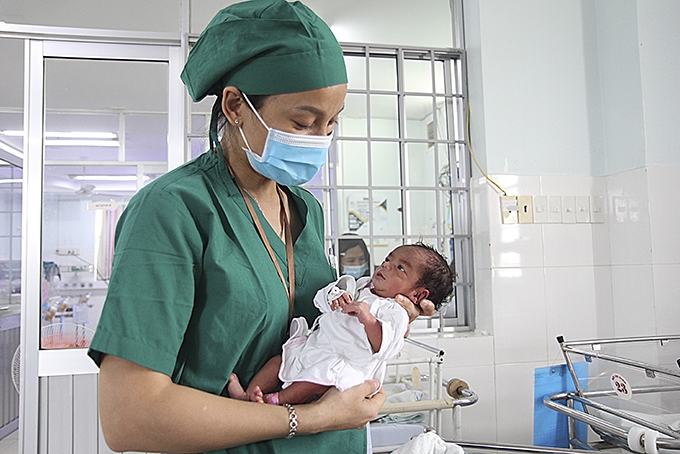 |
Specialist II Phan Huu Chinh - Director of the Provincial General Hospital: The efforts of the medical team, doctors and nurses of the Pediatrics Department have spectacularly saved the lives of many children who were on the brink of death, contributing to the hospital maintaining and improving the quality of treatment. In the coming time, the hospital will continue to invest in the Pediatrics Department with essential equipment for emergency and resuscitation for children, especially newborns. It is expected that in April, the Pediatrics Department will be equipped with a modern mobile hypothermia device specifically for children. |
Dr. Nguyen Thi Khanh Uyen - Deputy Head of Pediatrics Department had just finished examining a baby when she received a phone call from Cam Ranh Regional General Hospital informing her that they were preparing to receive a newborn transfer. While exchanging expertise over the phone, Dr. Uyen and the on-duty team were also ready to receive the upcoming newborn transfer. At this moment, from the milk delivery area, there was a sound of sobbing. A 42-year-old mother in Vinh Thai commune (Nha Trang city) had given birth for 2 days when the baby showed symptoms of excessive sleepiness, lethargy, refusing to breastfeed, rapid breathing, and was diagnosed with neonatal infection. After 1 day of treatment, the baby was able to drink 20ml of milk and was being monitored, but the mother was so worried because she had not been close to her baby that she could not sit still... Dr. Uyen gently explained and encouraged the mother to calm down and then quickly returned to work...
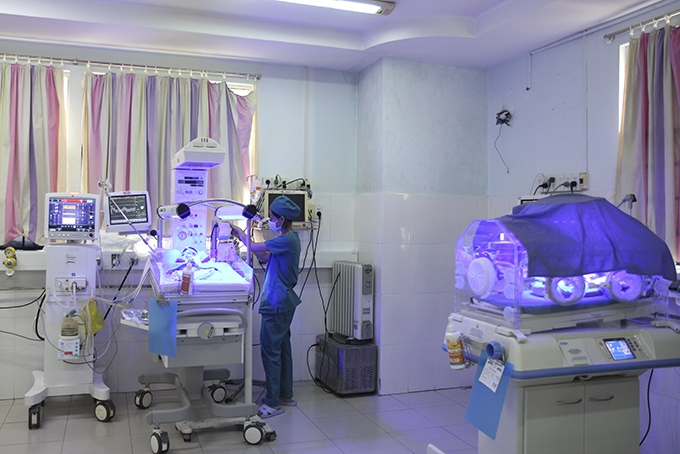 |
At night, the workload does not decrease. The whole process will be much more stressful if a case turns bad. However, not all relatives sympathize. Someone was so upset that he broke the glass door to check because he suspected the nurse was… sleeping!
The hearts of "kind mothers"
Care and treatment of premature infants is always a challenge in neonatal resuscitation, especially for extremely premature infants (under 28 weeks of gestation) and extremely low birth weight infants (under 1,000g). To take care of newborns, doctors and medical staff not only need knowledge and experience, but also love like a parent to detect early changes in the baby, from gestures, skin color, breathing, heart rate... Holding her baby's tiny hand, Ms. MTHN (32 years old, in Son Hoa district, Phu Yen province) smiled happily: "I gave birth to my baby at 29 weeks and 4 days. He only weighed 1,000g, was so small, he had to be in an incubator. The whole family was very worried and confused, at times it seemed like there was no hope. Thanks to the dedicated care of the doctors and nurses here, after 18 days in the incubator, he was able to meet his mother and receive "skin-to-skin" care. After nearly 2 and a half months, he is now able to breastfeed on his own, weighing 3.6kg. I am very grateful to the doctors and nurses here."
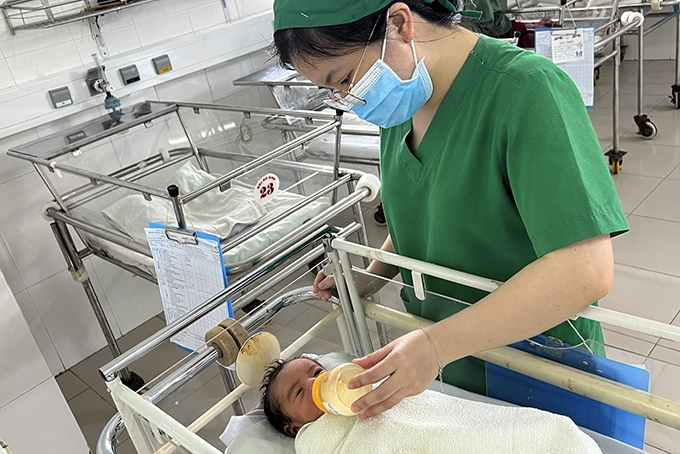 |
About 3 years ago, the neonatal intensive care unit received a baby boy in Khanh Vinh district. The baby was born by cesarean section, but had effusion, scleroderma, and had to have pulmonary intervention... After more than 2 months of day and night care, the baby gradually responded, recovered, and was discharged from the hospital to be with his mother. "Recently, when I went for a screening, my mother brought the baby to visit, and saw that he was happy and alert, the nurses did not recognize him, so I had to remind him again," nurse Huong said excitedly. Doctor Uyen also did not forget the case of a 30-week premature birth during the Covid-19 pandemic. After the baby entered the room and was taken off the ventilator, the mother contracted Covid-19 and transmitted it to the baby, causing the baby to become seriously ill and his platelets to drop sharply. The doctors had to change the medication continuously, but 14 days later, the test was still positive. After consulting with the upper level, the answer received was that the baby would hardly survive! But after more than 3 months of intensive care, the baby overcame the critical stage and returned to his mother's arms healthy.
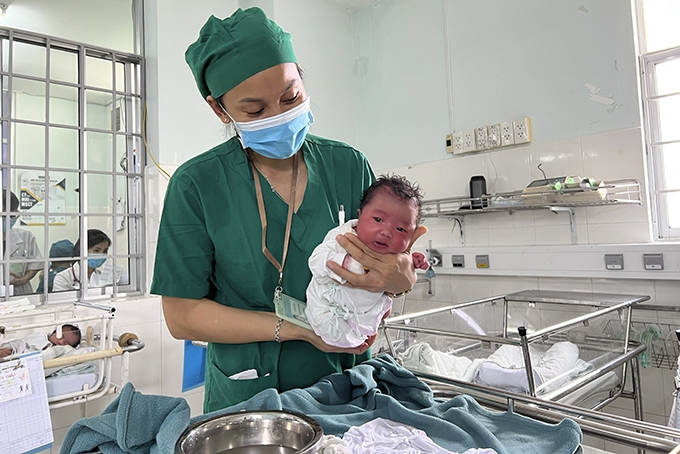 |
“Bringing a baby from the brink of life and death back to the arms of its parents is the greatest happiness for doctors and nurses. But we always remind each other not only to try to save the child’s life but also to do our best so that the patient can recover with the least sequelae, develop normally, and grow up healthy,” said Dr. Nguyen Thi Khanh Uyen, Deputy Head of the Pediatrics Department. |
NGUYEN VU - CAT DAN
Source







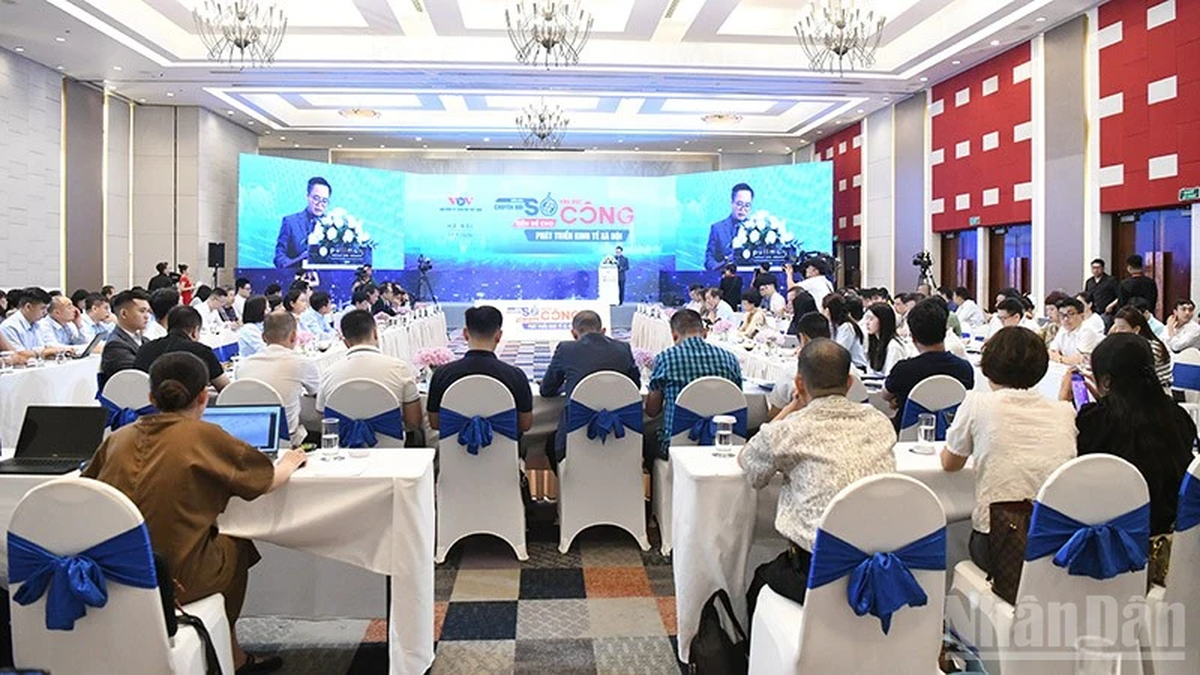
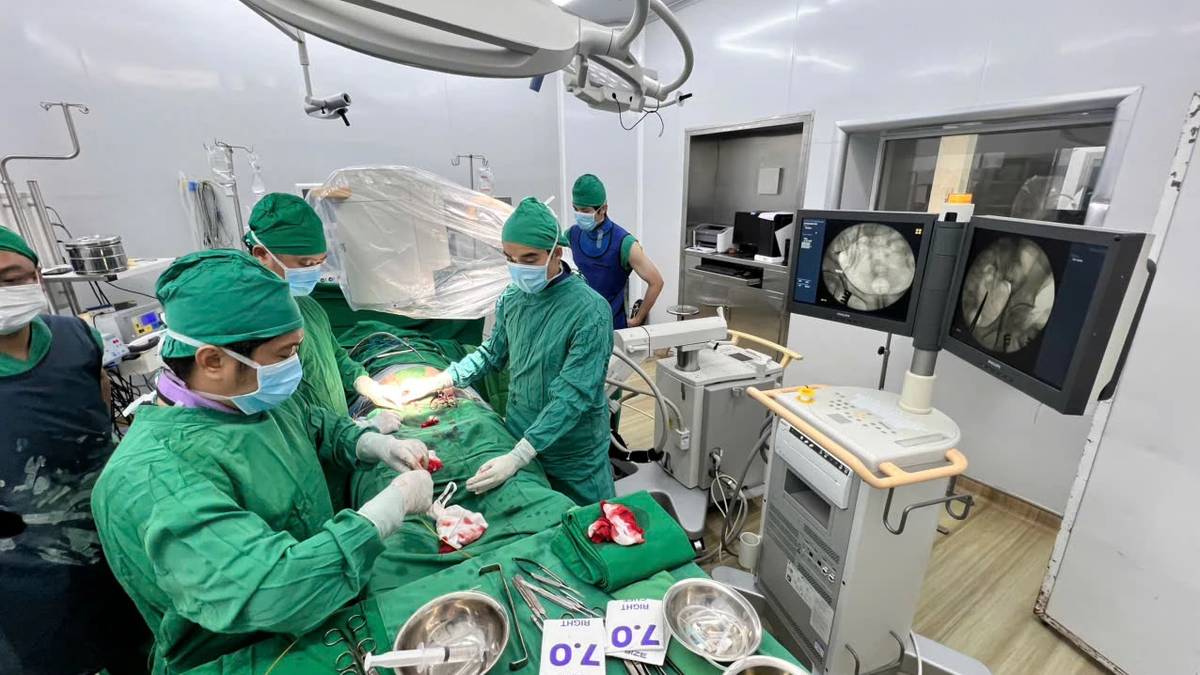




























































































Comment (0)